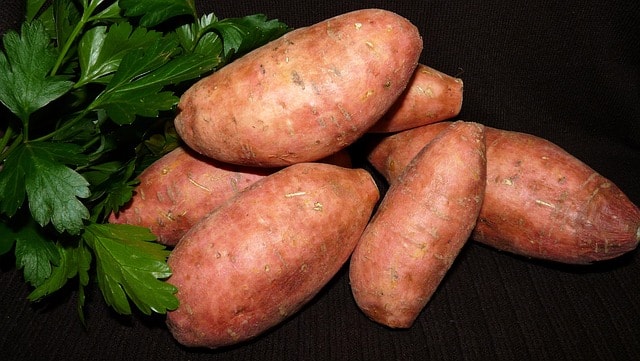What Supplements Do I Add to Homemade Dog Food for Optimal Nutrition?

What Supplements Do I Add to Homemade Dog Food for Optimal Nutrition?
Understanding Homemade Dog Food
Benefits of Homemade Dog Food
Allows for customization to meet individual dog’s needs and preferences: Homemade dog food gives pet parents the flexibility to tailor meals specifically to their dog’s breed, weight, energy level, and unique health requirements. Whether your pup needs higher protein for muscle development or fewer calories for weight control, homemade meals provide that control.
Can be more cost-effective than commercial dog food: While premium commercial dog food can be expensive, preparing homemade meals allows you to save money by purchasing fresh ingredients in bulk. This cost-effective approach ensures your dog gets high-quality food without breaking the bank.
Enables owners to avoid preservatives and additives found in commercial dog food: Many commercial foods contain artificial preservatives, fillers, and additives that may lead to health problems over time. Homemade food eliminates these unnecessary ingredients, offering a cleaner and safer option for your dog.
Can be a healthier option for dogs with food sensitivities or allergies: Dogs with allergies or digestive sensitivities benefit greatly from homemade food. By carefully selecting ingredients like chicken, brown rice, and vegetables, pet parents can avoid allergens and ensure their dog’s diet supports overall wellness.
Provides an opportunity to use fresh, wholesome ingredients and ensure that homemade food offers adequate nutrition for pets: Preparing meals at home allows you to use human-grade ingredients like lean meats, eggs, and fresh vegetables. Adding supplements such as LYX hydration ensures all the nutrients are balanced to meet your dog’s dietary needs, supporting energy, digestion, and vitality. This approach is particularly beneficial for a dog's diet, ensuring they receive all necessary nutrients.
Importance of Balanced Nutrition
A balanced diet is crucial for maintaining a dog’s overall health and well-being. A well-planned homemade dog food diet can provide all the necessary nutrients for optimal health. However, it’s essential to ensure that the diet is complete and balanced to avoid any nutritional deficiencies. Homemade dog food allows you to control the quality and variety of ingredients, ensuring your dog gets a mix of proteins, fats, vitamins, and minerals. Always consult with a veterinary nutritionist to tailor the diet to your dog’s specific needs and to ensure it meets all nutritional requirements. Incorporating fresh food into a homemade dog food diet can further enhance your dog's health and vitality.
Key Nutrients for Homemade Dog Food
Protein Sources
Chicken, turkey, beef, lamb, pork, salmon, and other fish: These animal-based proteins are rich in essential amino acids, which are critical for muscle development and overall health. Lean options like chicken and turkey can help maintain a healthy weight, while salmon provides omega-3 fatty acids for a shiny coat and joint support.
Eggs, dairy, and legumes can also be used as protein sources: Eggs are a nutrient-dense option packed with protein and vitamins, while legumes like lentils and chickpeas offer plant-based alternatives for added variety. Including these sources ensures dogs get a mix of animal and plant-based proteins.
It’s essential to vary protein sources to ensure a balanced diet: Rotating proteins like beef, fish, and poultry helps prevent nutrient deficiencies and reduces the risk of allergies from overexposure to a single ingredient. A diverse diet supports long-term health and optimal body condition.
Consult with a veterinary nutritionist to determine the best protein sources for your dog: Professional guidance ensures that homemade meals meet AAFCO standards and provide all the nutrients your dog requires. Veterinary nutritionists can help balance proteins with other food ingredients for your dog's unique dietary needs.
Fat Sources
Animal fats, such as chicken fat and beef tallow: These fats are excellent sources of energy and flavor, making homemade dog food more palatable while providing essential fatty acids that support overall health.
Plant seed oils, such as flaxseed oil and coconut oil: Plant-based oils are rich in healthy fats, including omega-3 and omega-6, which promote inflammation control and healthy skin. Coconut oil can also aid digestion and improve your dog’s coat.
Fish oil is a rich source of omega-3 fatty acids: Fish oil offers DHA and EPA, which are vital for reducing inflammation, supporting joint mobility, and improving cognitive function in dogs of all ages.
Fats are essential for skin and coat health, as well as brain function: Including the right balance of fats in your dog’s diet ensures optimal brain development, promotes a shiny coat, and helps maintain skin moisture to prevent dryness and irritation.
Vitamin and Mineral Sources
Fresh fruits and vegetables, such as green beans and carrots, provide essential nutrients that are often missing in a dog's diet, especially in commercial dog food, which lacks real food ingredients: These nutrient-rich foods supply fiber, antioxidants, and vitamins that promote a strong immune system and healthy digestion. Green beans are a low-calorie option for weight management, while carrots provide beta-carotene for eye health.
Whole grains, such as brown rice and oats: Whole grains are a great source of energy, delivering complex carbohydrates, fiber, and essential B vitamins. Brown rice is easily digestible and gentle on the stomach, while oats can help regulate blood sugar levels.
Organ meats, such as liver and kidney: Organ meats are nutrient-dense superfoods packed with vitamins and minerals like iron, vitamin A, and zinc. Liver supports healthy blood production, while kidneys provide essential nutrients for overall organ function.
Supplements, such as riboflavin and folic acid, may be necessary to ensure a balanced diet: While homemade meals offer fresh, whole ingredients, supplements help fill nutritional gaps and meet AAFCO standards. Riboflavin supports energy metabolism, and folic acid aids in red blood cell production, ensuring your dog’s diet remains complete and balanced.
Supplements for Homemade Dog Food
Essential Supplements
- Vitamin D and calcium strengthen bones and teeth.
- Omega-3 fatty acids keep your dog’s skin healthy and coat shiny.
- Probiotics support a balanced and healthy digestive system.
-
Riboflavin and other vitamins and minerals ensure overall well-being.
Macronutrients
Macronutrients are the cornerstone of a dog’s diet, providing the essential energy, growth, and maintenance needed for a healthy life. When making homemade dog food, it’s crucial to ensure that your dog receives all the necessary macronutrients in the right proportions. Here’s a breakdown of the key macronutrients your dog needs:
-
Protein: Protein is vital for building and repairing muscles, organs, and tissues. Good sources of protein for homemade dog food include chicken, beef, fish, eggs, and legumes. These ingredients ensure your dog gets the essential amino acids required for overall health and vitality.
-
Fat: Fat provides energy, helps absorb vitamins, and maintains healthy skin and coat. Healthy sources of fat for homemade dog food include plant oils, such as coconut oil and salmon oil. These fats are rich in omega-3 and omega-6 fatty acids, which support brain function and reduce inflammation.
-
Carbohydrates: Carbohydrates are a primary energy source and provide necessary fiber. Whole grains like brown rice, oats, and barley are excellent carbohydrate sources for homemade dog food. Vegetables like green beans and sweet potatoes are also rich in carbohydrates and offer additional vitamins and minerals.

- Fiber: Fiber is essential for maintaining healthy digestion and regular bowel movements. Fresh fruits and vegetables, such as apples and carrots, are good sources of fiber for homemade dog food. Fiber helps prevent constipation and supports a healthy gut microbiome.
When creating homemade dog food recipes, it’s essential to balance these macronutrients to ensure your dog is getting all the nutrients they need. A general guideline is to aim for:
- 25-30% protein
- 15-20% fat
- 40-50% carbohydrates
-
2-4% fiber
Consulting with veterinary nutritionists can help you create a well-balanced and complete homemade dog food diet that meets your dog’s specific needs. Remember, a recurring or deferred purchase of fresh ingredients can help ensure that your dog’s food is always fresh and nutritious. Avoid using old food or low-quality ingredients, as they can be detrimental to your dog’s health. By incorporating a variety of whole foods and balancing macronutrients, you can create a healthy and delicious homemade dog food diet for your furry friend.
Additional Supplements
Glucosamine and chondroitin support joint function and mobility.
Antioxidants like vitamin E and beta-carotene fight free radicals.
Prebiotics promote healthy gut bacteria for better digestion.
A veterinary nutritionist can recommend the ideal supplements for your dog’s needs.
Joint Support
Joint support is a critical aspect of a dog’s health, especially as they age. A balanced diet that includes ingredients such as glucosamine and chondroitin can help support joint health. Homemade dog food recipes can be tailored to include these ingredients, which can help reduce the risk of joint-related issues. Additionally, supplements such as omega-3 fatty acids can also support joint health. By incorporating these elements into your homemade dog food, you can help maintain your dog’s mobility and comfort as they grow older.
Digestive Health
Digestive health is another essential aspect of a dog’s overall health. A balanced diet that includes fiber-rich ingredients such as green beans and brown rice can help support digestive health. Homemade dog food recipes can be designed to include these ingredients, which can help promote regular bowel movements and reduce the risk of digestive issues. Additionally, probiotics can also support digestive health by maintaining a healthy balance of gut bacteria. Ensuring your dog’s diet includes these components can lead to better digestion and overall well-being.
Creating Balanced Homemade Dog Food Recipes
Tips for Balancing Nutrients
Consult with a veterinary nutritionist to ensure a balanced diet tailored to your dog’s needs.
Use a variety of ingredients to provide a broad range of essential nutrients for optimal health.
Avoid over-supplementation, as excessive amounts of certain nutrients can lead to toxicity and health issues.
Keep records of your dog’s diet and monitor their health to adjust meals as needed for better balance.
Fresh Homemade Dog Food Recipes
Use fresh food and wholesome ingredients like chicken, brown rice, and green beans to provide high-quality nutrition.
Avoid using old food or expired ingredients, as they can compromise your dog’s health and safety.
Consider using a recurring or deferred purchase plan to maintain a consistent supply of fresh ingredients without hassle.
Ensure recipes include all the nutrients your dog needs, such as vitamins, minerals, and fatty acids, for a complete and balanced diet.
Common Mistakes to Avoid
Inadequate Research
While making homemade dog food can be a healthy alternative to commercial dog food, it’s essential to ensure that the diet is well-planned and balanced. Inadequate research and planning can lead to nutritional deficiencies, which can have serious health consequences for dogs. Veterinary nutritionists recommend that dog owners consult with a veterinarian or a veterinary nutritionist to ensure that their homemade dog food diet is complete and balanced. Additionally, it’s essential to use high-quality ingredients and avoid using old food or ingredients that are past their expiration date. Proper research and planning are key to providing a nutritious and safe diet for your dog.
Over-Supplementation
- Can lead to toxicity and harm your dog’s health
- Avoid using too many supplements or giving your dog too much of a particular supplement
-
Consult with a veterinary nutritionist to determine the best supplements and dosages for your dog
Under-Supplementation
- Can lead to nutrient deficiencies and harm your dog’s health
- Make sure to include all the necessary nutrients in your dog’s diet
- Consult with a veterinary nutritionist to determine the best supplements and dosages for your dog
Conclusion
Summary of Key Points
- Homemade dog food can be a healthy and cost-effective option for dog owners
- It’s essential to include a variety of ingredients and supplements to ensure a balanced diet
- Consult with a veterinary nutritionist to determine the best ingredients and supplements for your dog
- Avoid over-supplementation and under-supplementation to ensure your dog’s health and well-being.




